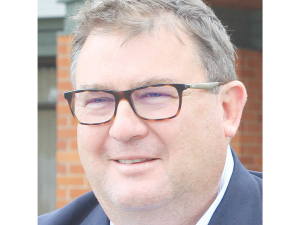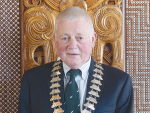The Government's Three Waters reforms, now rebranded as the ‘Affordable Water Reforms’, is more of a rebrand than an actual policy reset.
That’s the view of Waimate District Council chief executive, Stuart Duncan.
He told Rural News that the rebrand changes nothing in terms of the governance model, balance sheet separation, and exploration of essential community assets.
The changes to the policy will see 10 water entities formed instead of the four entities proposed in the Water Services Entities Bill proposed last year.
Local Government Minister Kieran McAnulty says the move will result in more local representation and avoid a potential 95% rates increase when compared with alternative options.
But Duncan says that councils and the community still have no control or say over the future three waters services, “albeit the Government claims communities hold some administrative form of ownership”.
“The Government’s legislation for three waters has a disastrous blind-spot, and that is any real duty-of-care to the viability and relevance of local councils, their people and their communities,” he says.
He says that while council-run water, wastewater and storm water services will be transferred to one of 10 Crown water entities by 1 July 2026, the transitional unit for the new water entity is “cherry-picking staff from local government and leaving councils to clean up the mess”.
“The staff likely to be taken also contribute to a very wide range of other council activities,” he says. “Their loss would cripple much of what councils currently do… Staff wellbeing is affected by the time-hungry demands of dealing with the reform.”
Duncan says he is concerned that employees who aren’t employed by the water entities may need to retrain.
“The connection between all these concerns is the glaring lack of information from Government about what functions may be available to replace three waters activities.”
He says that out of its total workforce of 85, Waimate District Council has 13 core three waters staff.
“The new entities need people with a wide range of skills associated with the development and management of three waters infrastructure.”
He says that it isn’t just engineering staff who are impacted by the change, it’s also IT staff, revenue staff, administrative staff, and policy staff.
“It is not just technical expertise; it is also the institutional knowledge base – an awareness of the local environment – especially with infrastructural resilience planning given the severe impact of Cyclone Gabrielle,” Duncan says.
“Take people out of councils and there is no other pool to draw from – there simply aren’t the people.
“The Government’s argument for the reform rests on the claimed benefits for communities: state-of-the-art infrastructure at an affordable cost. The argument is based solely on comparing the financial implications of staying with the status quo or moving to the new delivery model. The glaring omission is the human cost of these reforms.”
When Prime Minister Chris Hipkins took over the premiership, handing over the local government portfolio to McAnulty, the decision was made to refashion the policy.
McAnulty set out on a tour, speaking to 55 different councils on the topic, and, he says, gaining their perspective on the policy.
He says the reasoning behind the reforms is simple: Local councils need to find up to $180 billion to fix water infrastructure across the country, “and they can’t do it by themselves”.
“Councils are, individually, at their debt cap or if they’re not, their communities can’t afford to pay any higher rates, that’s causing the problem, so individually, they’re stuck,” McAnulty told a press conference when the policy reset was announced.
He says there is a limit to how much councils can afford to fund the necessary changes via a council-controlled organisation (CCO), e.g. Watercare or Wellington Water, because of the debt cap issue.



















